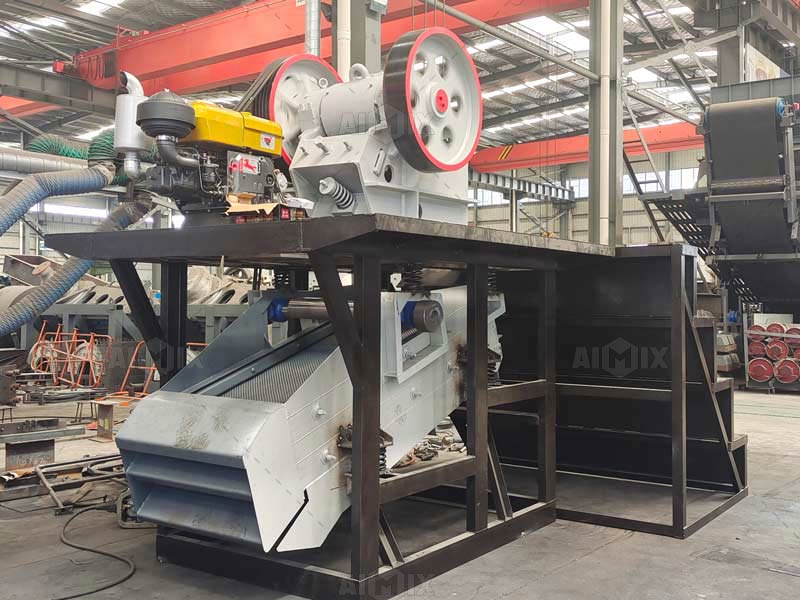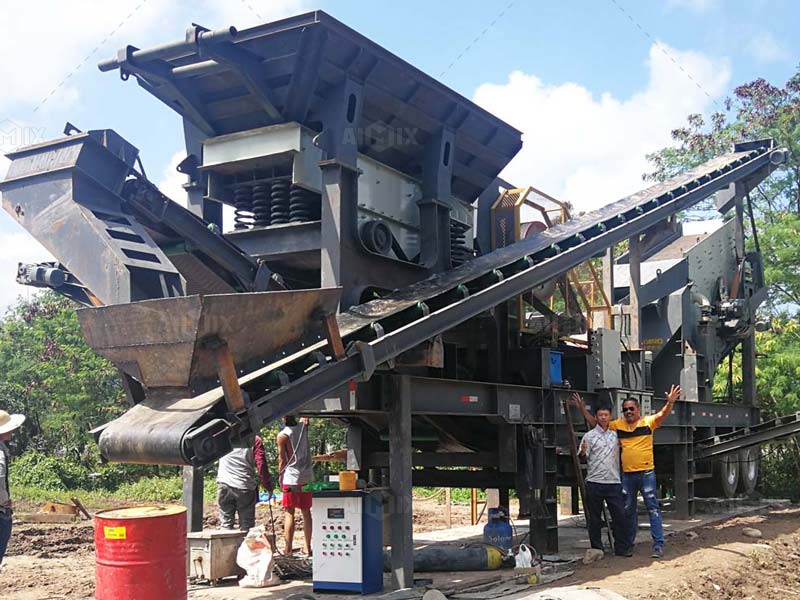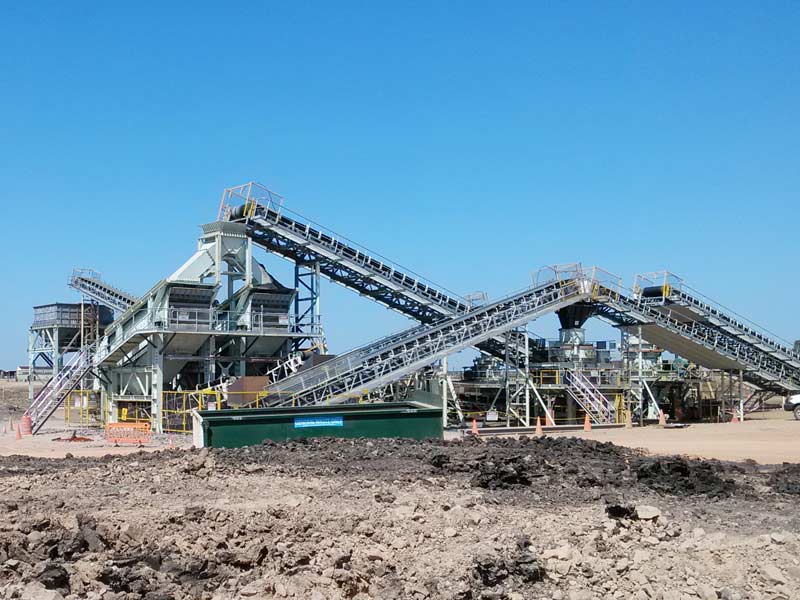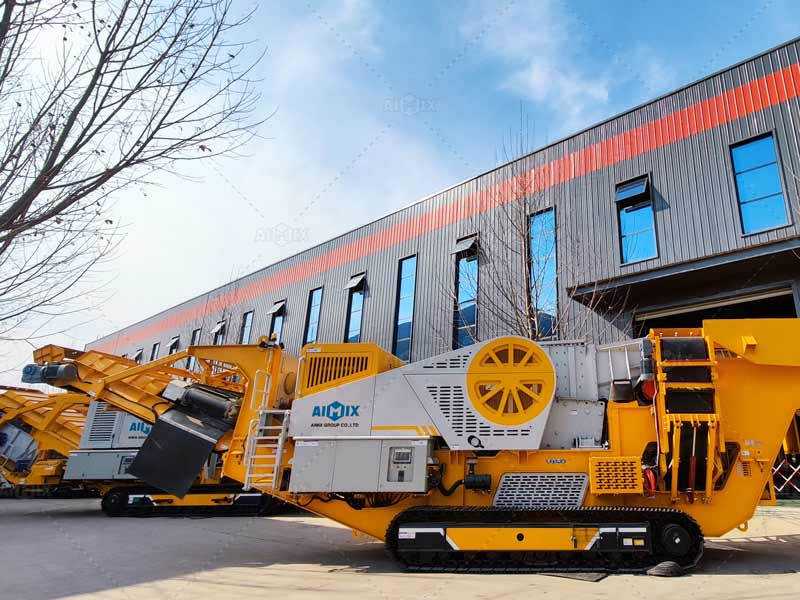In today’s world, environmental sustainability is a key consideration in various industries, including the mining and construction sectors. The need for eco-friendly crushing solutions has become paramount, and sustainable jaw crusher plants offer a promising way forward. This article explores the benefits and features of sustainable jaw crusher plants, highlighting their efficient energy utilization, minimized environmental impact, use of recycled and sustainable materials, maintenance and operational efficiency, and their contribution to circular economy principles.

Efficient Energy Utilization
Sustainable jaw crusher plants focus on optimizing energy utilization during the crushing process. Consider the following aspects:
Advanced power management systems: These systems intelligently monitor and control power consumption, reducing energy wastage and optimizing efficiency. Features like variable frequency drives and energy recovery systems enhance the overall energy performance of the plant.
Optimal crushing chamber design: The design of the crushing chamber plays a crucial role in maximizing energy transfer and reducing energy losses. Sustainable jaw crusher plants utilize advanced chamber geometries that promote efficient crushing, resulting in improved energy utilization.
Integration of renewable energy sources: To further enhance sustainability, jaw crusher plants can integrate renewable energy sources, such as solar panels or wind turbines, to partially or fully power the plant’s operations. This integration reduces reliance on fossil fuels and lowers carbon emissions.

Minimizing Environmental Impact
Sustainable jaw crusher plants prioritize minimizing environmental impact throughout the crushing process. Consider the following measures:
Reduction of noise and dust emissions: Advanced technologies, such as soundproof enclosures and dust suppression systems, significantly reduce noise and dust emissions from the fixed crushing plant. This minimizes disturbances to nearby communities and improves air quality.
Water conservation and wastewater management: Sustainable jaw crusher plants implement water conservation practices, such as recycling water within the plant for various processes. Efficient wastewater management systems ensure that water usage is optimized and wastewater is treated appropriately.
Proper waste disposal and recycling practices: Sustainable plants adhere to responsible waste disposal practices, ensuring that waste generated during the crushing process is segregated, recycled, or disposed of safely. This minimizes the environmental impact of waste materials and promotes a circular economy approach.

Use of Recycled and Sustainable Materials
Sustainable jaw crusher plants embrace the use of recycled and sustainable materials, reducing the demand for virgin resources. Consider the following approaches:
Incorporating recycled aggregates: Sustainable plants have the capability to process and incorporate recycled aggregates, such as crushed concrete or asphalt, into the production of new construction materials. This reduces the need for extracting and processing virgin aggregates, leading to resource conservation.
Sustainable construction materials for crusher plant infrastructure: The construction materials used for the crusher plant infrastructure, such as steel and concrete, can be sourced from sustainable suppliers. These suppliers follow responsible sourcing practices and prioritize the use of recycled or eco-friendly materials.
Minimizing carbon footprint through material choices: Sustainable jaw crusher plants carefully consider the carbon footprint of the materials used in the construction of the plant. Opting for materials with lower embodied carbon, such as recycled steel or sustainable composites, helps reduce the overall environmental impact of the plant.

Maintenance and Operational Efficiency
Sustainable jaw crusher plants emphasize maintenance and operational efficiency to maximize their environmental performance. Consider the following practices:
Regular maintenance for optimal performance: Scheduled maintenance activities, including inspections, lubrication, and component replacements, ensure that the stone crushing and screening plant operates at its peak efficiency. This reduces energy waste and extends the lifespan of the equipment.
Training and education for operators: Well-trained operators understand the importance of energy efficiency and environmental stewardship. Training programs focus on efficient operational practices, including proper equipment operation, optimizing settings, and identifying potential issues that may impact performance.
Implementing efficient operational practices: Sustainable jaw crusher plants implement operational practices that reduce energy consumption and maximize productivity. This includes optimizing feed rates, utilizing automation and remote monitoring systems, and employing real-time data analysis to identify areas for improvement.
Conclusion
Sustainable jaw crusher plants offer a path towards eco-friendly crushing solutions in the mining and construction sectors. With their efficient energy utilization, minimized environmental impact, use of recycled and sustainable materials, maintenance and operational efficiency, and alignment with circular economy principles, these plants are at the forefront of sustainable practices. By embracing these solutions, industries can achieve their crushing needs while contributing to a more sustainable future.

